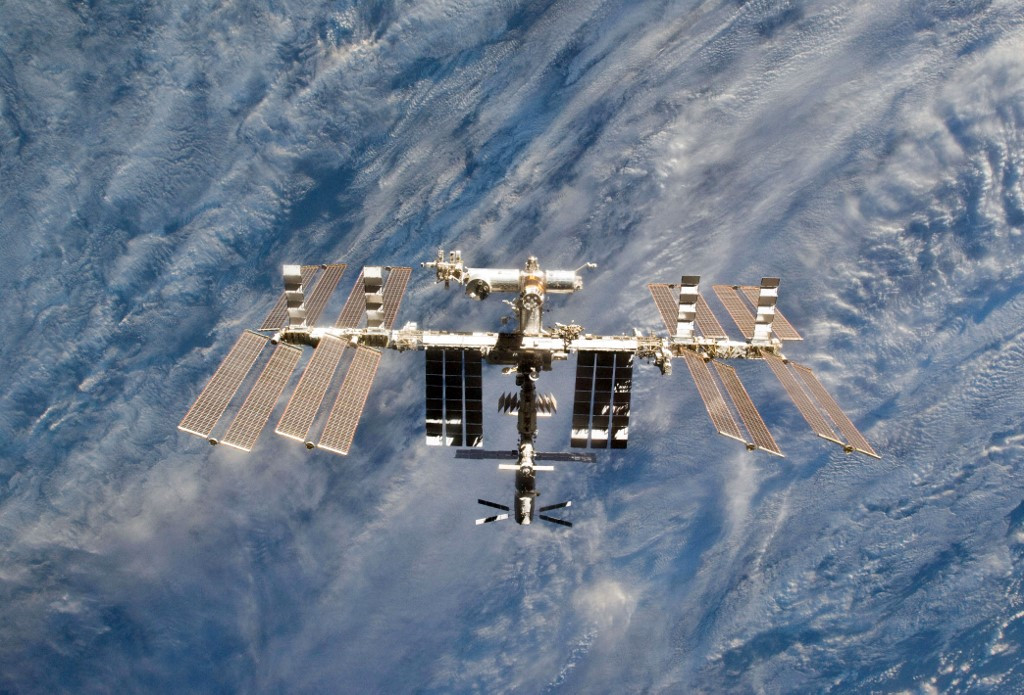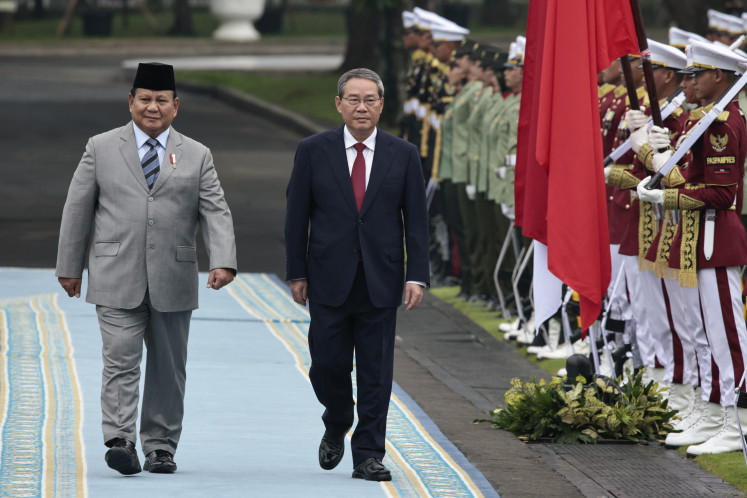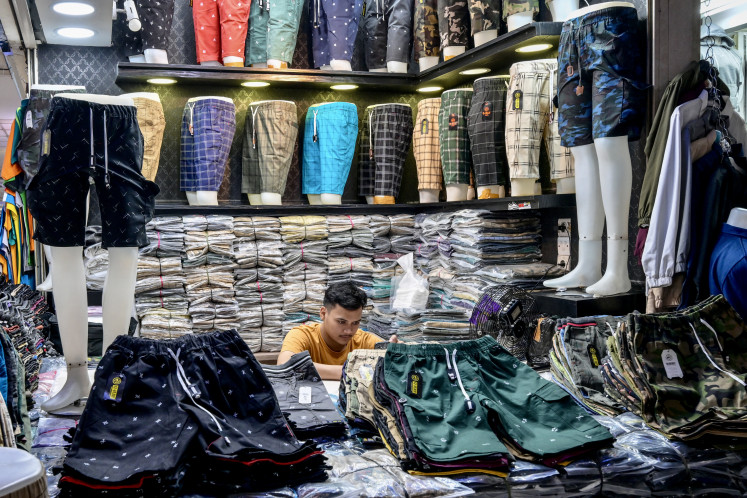Indonesia at a crossroads in pursuing spaceport dream
In light of the current geopolitical tensions on earth that have extended into outer space, the government should consider applying for MTCR membership while reframing its foreign policy stance in order to pursue its dreams of developing a spaceport on Indonesian soil.
Change text size
Gift Premium Articles
to Anyone

T
ensions between the West and Russia have escalated to a critical level in outer space. Russia’s invasion of Ukraine has led to numerous sanctions against the aggressor, including one on national space agency Rocosmos and private aerospace companies. Sanctions against Russia’s aerospace industry have increased existing tensions and lead to reinstating bipolarity in space activities, as happened during the Cold War space race.
Such bipolarity will more or less affect Indonesia’s space activities also, either directly or indirectly, particularly its plan to build a spaceport in Biak, Papua.
As an equatorial country, Indonesia is aware of its highly strategic location in facilitating space activities. One of its most important strategies is launching a program to promote Indonesia as a newly emerging space power: a game changer that will also bring economic benefits.
Indonesia has dreamed of building a spaceport since 1963, but due to the political turmoils of 1965 and 1998, the plan remained excluded from national legislation and policy until 2013, when the government enacted Law No. 21/2013 on Space Activities.
The 2013 Space Law sets legal grounds to begin planning long-term Indonesian space activities. This includes developing a national spaceport in Indonesian territory. The mandate has been reinforced in the 2016-2040 Space Industry Development Master Plan, with phased targets for building the spaceport. Currently, the National Institute of Aeronautics and Space (Lapan) is drafting a regulation on spaceport operation and space commercialization.
Indonesia’s spaceport will likely have the capability to launch a dual-stage rocket carrying low earth orbit (LEO) satellites by 2040. The spaceport is to be for both government and private launches. It is ideal for Indonesia, considering its vast sea territory, not to mention its location near the equator.
In 2002, Russia expressed its interest in building an "air launch system" in Biak, followed by signing an agreement in 2006. Russian interests include a strategy to build confidence and strengthen its presence in space technology in Southeast Asian countries, Indonesia in particular. No recent discussions have been held between Indonesia and Russia to realize the plan.
The major constraint of Indonesia-Russia space cooperation is the fact Indonesia is not a member of the Missile Technology Control Regime (MTCR). The multilateral regime limits its member states in exporting and sharing sensitive space technology to nonmember states. As a result, the Indonesia-Russia space partnership will face difficulties in sharing knowledge of sensitive space technology.
This hampers importing rocket technology from Russia. According to the MTCR, rocket technology falls under the dual-use doctrine on technologies for both civilian and military purposes, with the latter covering explosive warhead payloads for aggressive or defensive purposes.
One way to break the stalemate is for Indonesia to apply for MTCR membership. Once Indonesia is admitted, other member states can provide it with direct access to space technology to support the future development of an Indonesian spaceport.
One requirement for MTCR membership is that the applicant country has enacted a regulation on the transfer of sensitive technologies. The legal basis is provisioned in Article 27 of Indonesia’s 2013 Space Law, which indicates its intention to meet international standards on transferring sensitive technologies. However, further details on implementing this provision are pending completion of a government regulation.
Now, the Russia-Ukraine war may jeopardize Indonesia’s spaceport dream, which is why it should consider an alternative partner or partners.
Amid the current geopolitical uncertainty, Indonesia should determine the direction of its space development. It has turned to its free and active foreign policy stance when it refused to impose sanctions against Russia, although it did vote to support the United Nations resolution condemning Russia’s invasion of Ukraine.
However, in the long run, Indonesia’s free and active policy stance shall become a major constraint in pursuing “Space 4.0”. Outer space activities have become more polarized as regards the technologies developed by Russia and the US. Indonesia’s foreign policy stance needs reformulating to distinguish activities on earth and in outer space.
Times have changed and the Cold War showed that Soviet Union-US tensions on earth did not spill over into outer space. The UN’s Outer Space Treaty to maintain peace in the space beyond earth has remained triumphant and should be maintained.
Redefining Indonesia’s foreign policy stance, particularly in relation to outer space activities, will give the country more choices and opportunities in developing its space capabilities. Had its foreign policy stance been reformulated, Indonesia have no need to fear any sanctions on entering an agreement with Russia on space activities, while it could continue to be engaged with western technologies.
Good Indonesian-Russian ties in space activities is capital for Indonesia to master space technology. Space debris has become a more serious issue, while dialogue between the two countries could lead to efforts to half the development of anti-satellite weapons (ASATs). Russia has been actively conducting ASAT tests since 2020.
Space activities are seen as high-risk, high-tech and expensive, which is why only a few developed countries possess the necessary technologies to pursue them effectively. Until today, Russia and the US are regarded as the pioneers of space exploration and activities.
Compared to other sectors, the space industry is unique and extraordinary in that any country seeking to develop its capacity in space technology must choose between Russia and the US. Each choice comes with a price, including for Indonesia.
However, redefining its free and active foreign policy doctrine with a purpose to maintain peace on earth and in outer space could lower the price.
***
Ridha Aditya Nugraha teaches air and space law at Prasetiya Mulya University; Taufik Rachmat Nugraha is a space law researcher at the Indonesian Centre for Air and Space Law (ICASL) at Padjadjaran University. The views expressed are personal.









